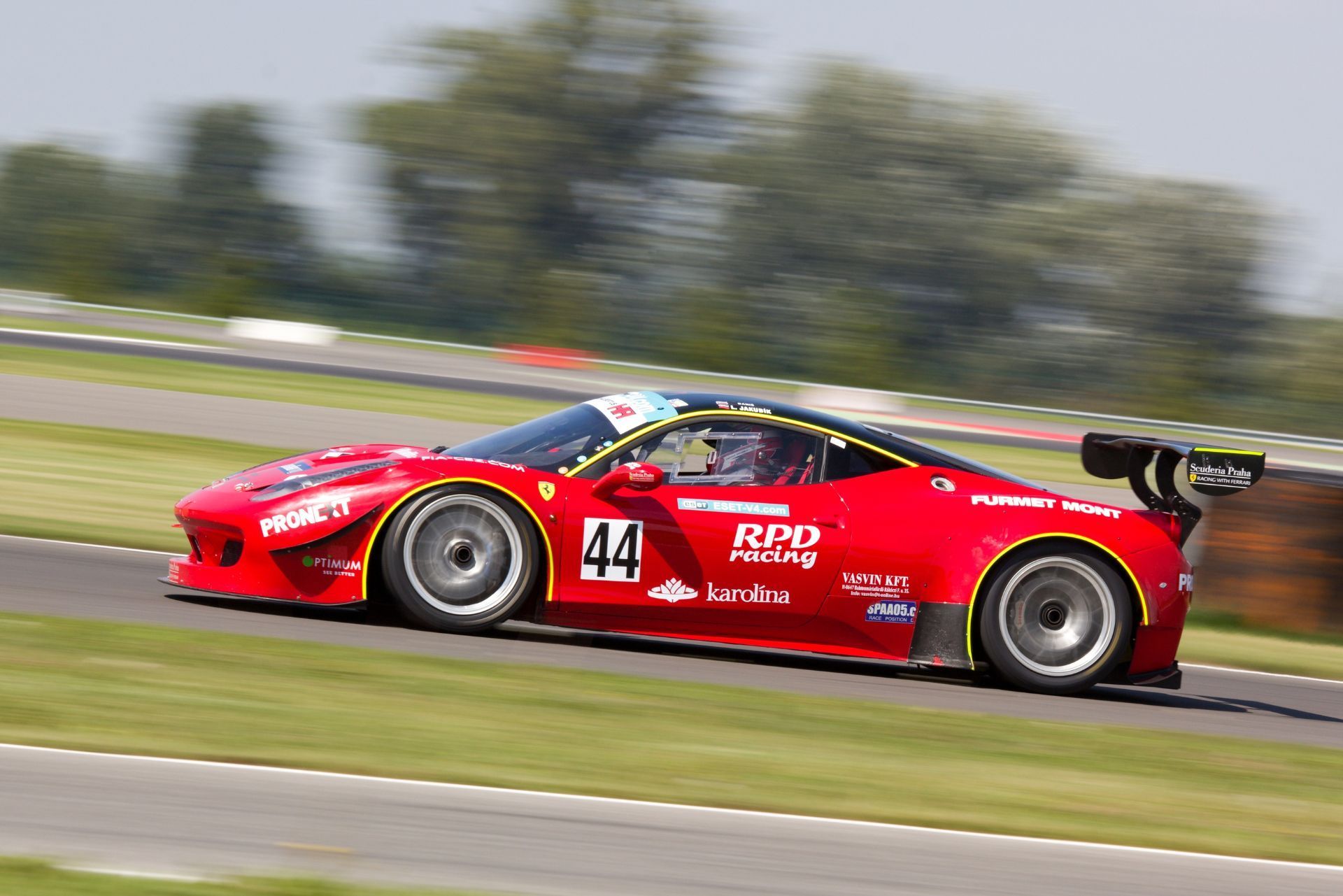
Most Common Personal Policies
Index
Contact Us
For motorsport enthusiasts, track days represent an exhilarating opportunity to experience the full potential of their vehicles in a controlled environment. However, participating in track days comes with inherent risks, both to the driver and the vehicle. This is where track day insurance plays a vital role, offering peace of mind. In this article, we will explore various aspects of track day insurance, encompassing its definition, significance, key features, costs, and more.
Understanding Track Day Insurance
Definition of Track Day Insurance
Track day insurance is a specialized form of insurance designed to protect your vehicle during motorsport events, including track days, racing, and other high-performance driving experiences. Unlike standard car insurance policies, track day insurance specifically addresses the unique risks associated with driving a vehicle at high speeds on a closed course.
This type of insurance is typically temporary, covering the duration of the track event. It can protect against physical damage to your car, liability for damage to others' property, and in some cases, medical expenses incurred as a result of an accident on the track. Additionally, many policies offer coverage for theft or vandalism that might occur while your vehicle is parked in the paddock area, ensuring that you have peace of mind even when you’re not behind the wheel.
Importance of Track Day Insurance
The importance of track day insurance cannot be overstated. Driving at high speeds can lead to significant financial consequences if an accident occurs. Standard car insurance policies often exclude coverage for vehicles driven in motorsport events, which means that without track day insurance, you could be left liable for repairs or total losses. This can amount to thousands of dollars, depending on the severity of the incident and the value of your vehicle.
Moreover, participating in events organized by professional track clubs or racing organizations often requires proof of insurance. Therefore, having track day insurance is not just a wise choice; it may be a mandatory requirement to ensure your safety and compliance with event regulations. It's also worth noting that many track day insurance providers offer customizable policies, allowing drivers to select coverage limits that suit their individual needs and risk tolerance. This flexibility can be particularly beneficial for those who own high-performance or classic cars, as they can tailor their coverage to reflect the unique value and potential risks associated with their vehicles.

Key Features of Track Day Insurance
Coverage Details
Track day insurance policies typically offer a variety of coverage options tailored to the needs of the driver. The core components usually include:
- Damage to Your Vehicle: Covers repair costs or replacement value in case of an accident.
- Liability Coverage: Protects against damage caused to other people’s vehicles or property.
- Driver Injuries: Some policies provide coverage for medical expenses resulting from an accident.
- Track Fees and Medical Expenses: In specific cases, coverage can extend to track fees associated with your incident.
In addition to these core components, many track day insurance policies also offer optional add-ons that can enhance your coverage. For instance, some providers may offer rental car reimbursement if your vehicle is rendered inoperable due to an accident on the track. Others might include coverage for personal belongings within the vehicle, which can be particularly beneficial if you have valuable equipment or gear that you take with you on track days. Moreover, certain policies may also offer a no-claims bonus, rewarding drivers who do not make claims over a specified period with reduced premiums on future policies.
Limitations and Exclusions
While track day insurance provides valuable protection, it is essential to be aware of its limitations and exclusions. Commonly, policies may not cover reckless driving, driving under the influence, or vehicles modified beyond manufacturer specifications. Additionally, events categorized as racing (rather than track days) may not be covered at all.
It is crucial to read the policy carefully and understand what is included and excluded so that you are not caught off guard in case of an incident. Consulting with the insurance provider and asking specific questions can help clarify these details. Furthermore, it’s important to note that some insurers may have geographical limitations, meaning that coverage might only apply to certain tracks or regions. Understanding these nuances can help you make informed decisions about where and how you drive, ensuring that you remain within the terms of your policy while enjoying the thrill of the track.
How to Choose the Right Track Day Insurance
Factors to Consider
Choosing the right track day insurance involves several considerations. Here are a few factors to keep in mind:
- Type of Coverage: Assess your needs and choose between options like liability-only or comprehensive coverage.
- Your Driving Experience: Consider if you are a novice or an experienced driver, as this might influence the cost and type of insurance needed.
- Vehicle Value: The value of your car plays a significant role in determining how much coverage you should purchase.
- Event Requirements: Verify any specific insurance requirements dictated by the track or event organizers.
Comparing Different Insurance Providers
With multiple providers offering track day insurance, it is essential to compare options to find the best terms and rates. Consider obtaining quotes from various companies and evaluating their coverage options, customer reviews, and claims processes.
Utilizing online comparison tools can simplify this process, as they allow you to quickly overview different policies side-by-side. Always read the fine print, as subtle differences in coverage or exclusions can significantly impact what you may end up paying in case of an accident.
Additionally, it can be beneficial to seek recommendations from fellow track day enthusiasts or online forums dedicated to motorsport. Engaging with a community of like-minded individuals can provide insights into which insurers are reputable and which ones have a history of handling claims efficiently. You might also find tips on how to negotiate better terms or discover lesser-known providers that offer competitive rates without compromising on coverage.
Lastly, consider the customer service reputation of the insurance provider. In the event of an incident, having responsive and supportive customer service can make a significant difference in your experience. Look for providers that offer 24/7 support and have a straightforward claims process, as this can alleviate stress during what is often a challenging time for any driver.
The Cost of Track Day Insurance
Factors Influencing the Price
The cost of track day insurance can vary widely based on several factors:
- Driving History: A clean driving record may earn you lower premiums.
- Type of Vehicle: High-performance vehicles often incur higher insurance costs due to their likelihood of being involved in accidents.
- Coverage Amount: The chosen level of coverage directly affects the overall cost.
- Duration of Coverage: The longer the coverage period required, the more expensive the policy may be.
Additionally, the location of the track can also play a significant role in determining insurance costs. Tracks situated in areas with higher accident rates or those that are known for more challenging courses may lead to increased premiums. Furthermore, the type of event can influence pricing; competitive racing events might necessitate more comprehensive coverage compared to casual track days. Insurers often assess the risk associated with the specific track and event type before finalizing the quote.
Tips to Lower Your Insurance Cost
If you’re looking to manage the expenses of track day insurance, consider the following tips:
- Shop Around: Compare different policies and providers to find competitive rates.
- Bundling Policies: If possible, bundle your track day insurance with other insurance products for potential discounts.
- Safe Driving Courses: Completing advanced driving or safety courses may qualify you for lower premiums.
- Group Policies: Some organizations offer group policies that can lower individual rates.
Moreover, engaging with your local motorsport community can provide valuable insights into the best insurance options available. Fellow enthusiasts often share their experiences and recommendations, which can lead you to specialized insurers that cater specifically to track day participants. Networking at events or joining forums can also help you discover exclusive deals or promotions that might not be widely advertised. Additionally, maintaining your vehicle in top condition and ensuring all safety features are functional can further demonstrate to insurers that you are a responsible driver, potentially leading to additional savings on your policy.

Claiming Track Day Insurance
When to File a Claim
Knowing when to file a claim is crucial for any driver involved in a track incident. In general, a claim should be filed when:
- You have sustained damage to your vehicle.
- Your vehicle has caused damage to another person's property.
- Injuries have occurred during the event.
It's also important to consider the severity of the incident. For example, if you experience a minor scrape or dent that doesn't affect the vehicle's performance, you might choose to forgo filing a claim to avoid potential increases in your premium. However, if the incident involves significant damage or injury, it’s essential to file a claim to ensure that all parties involved are covered. Additionally, some insurance policies may have specific time frames within which you must report an incident, so being aware of these details can help streamline the process.
The Claim Process
The claims process can vary among insurance providers, but typically includes these steps:
- Documentation: Gather all necessary documentation, such as incident reports, photos of damages, and witness statements.
- Notify Your Insurer: Contact your insurance provider promptly to inform them of the incident.
- Complete Claim Forms: Fill out required forms accurately and submit evidence supporting your claim.
- Follow Up: Keep in touch with your insurer for updates on the claim progress.
During the documentation phase, it’s beneficial to take detailed photographs from multiple angles, capturing not just the damage to your vehicle but also the surrounding area where the incident occurred. This can provide context and support your account of the event. Furthermore, if there were any witnesses, obtaining their contact information can be invaluable, as their statements may corroborate your version of events. Once you notify your insurer, be prepared to answer questions about the incident, as they will need to assess liability and determine the next steps in processing your claim. Patience is key, as the claims process can sometimes take longer than expected, especially if there are disputes regarding fault or if multiple parties are involved.
Frequently Asked Questions about Track Day Insurance
Common Misconceptions
One common misconception regarding track day insurance is that it is unnecessary if you have standard car insurance. This is not true; as mentioned, most personal auto insurance policies exclude coverage for track-related incidents. In fact, many drivers are surprised to learn that their personal insurance could leave them vulnerable to significant financial loss in the event of an accident on the track. This is particularly concerning given the high speeds and unique driving conditions that track days present, which can lead to costly repairs or even total loss of the vehicle.
Another confusion is the belief that all events are covered under a single policy. Track day insurance is tailored to specific events, and participating in different types of motorsport activities may require additional coverage. For instance, a policy that covers a high-speed track day may not extend to events that involve timed laps or competitive racing. It's essential for participants to carefully review the details of their insurance to ensure they are adequately protected for the specific activities they plan to engage in during their track day.
Expert Advice
For first-time track day participants, it is wise to consult with both experienced drivers and insurance professionals. They can provide insights into the common pitfalls associated with track day insurance and suggest what coverage may best suit your needs. Additionally, seasoned drivers often share valuable tips on how to prepare for a track day, including vehicle inspections and necessary modifications that can enhance safety and performance. This guidance can be invaluable, as it helps newcomers navigate the complexities of both driving and insurance.
Prioritize understanding your policy terms and ensure you meet all necessary pre-requisites. Handling these aspects effectively can enrich your driving experience while safeguarding your financial interests. It's also beneficial to familiarize yourself with the specific rules and regulations of the track you will be visiting, as these can influence your insurance requirements. Some tracks may have their own insurance mandates or may require proof of coverage before allowing participants to drive, adding another layer of importance to securing the right insurance ahead of time.


